Welcome to our Young Generation Policy Briefs series! In this first issue, Prof. Timm Beichelt presents a practical guide on writing a policy brief and introduces the concept behind the Young Generation Policy Briefs by summarising key issues at stake in the proclamation and contestation of European values. Explore all Young Generation Policy Briefs here!
Timm Beichelt is a political scientist and professor of European Studies at the European University Viadrina Frankfurt (Oder), located on the German-Polish border. He is the principal investigator of ValEUs, a global research and education network scrutinising the European Union‘s foreign policy and attacks on its foundational values.
Young Generation Policy Brief no. 1:
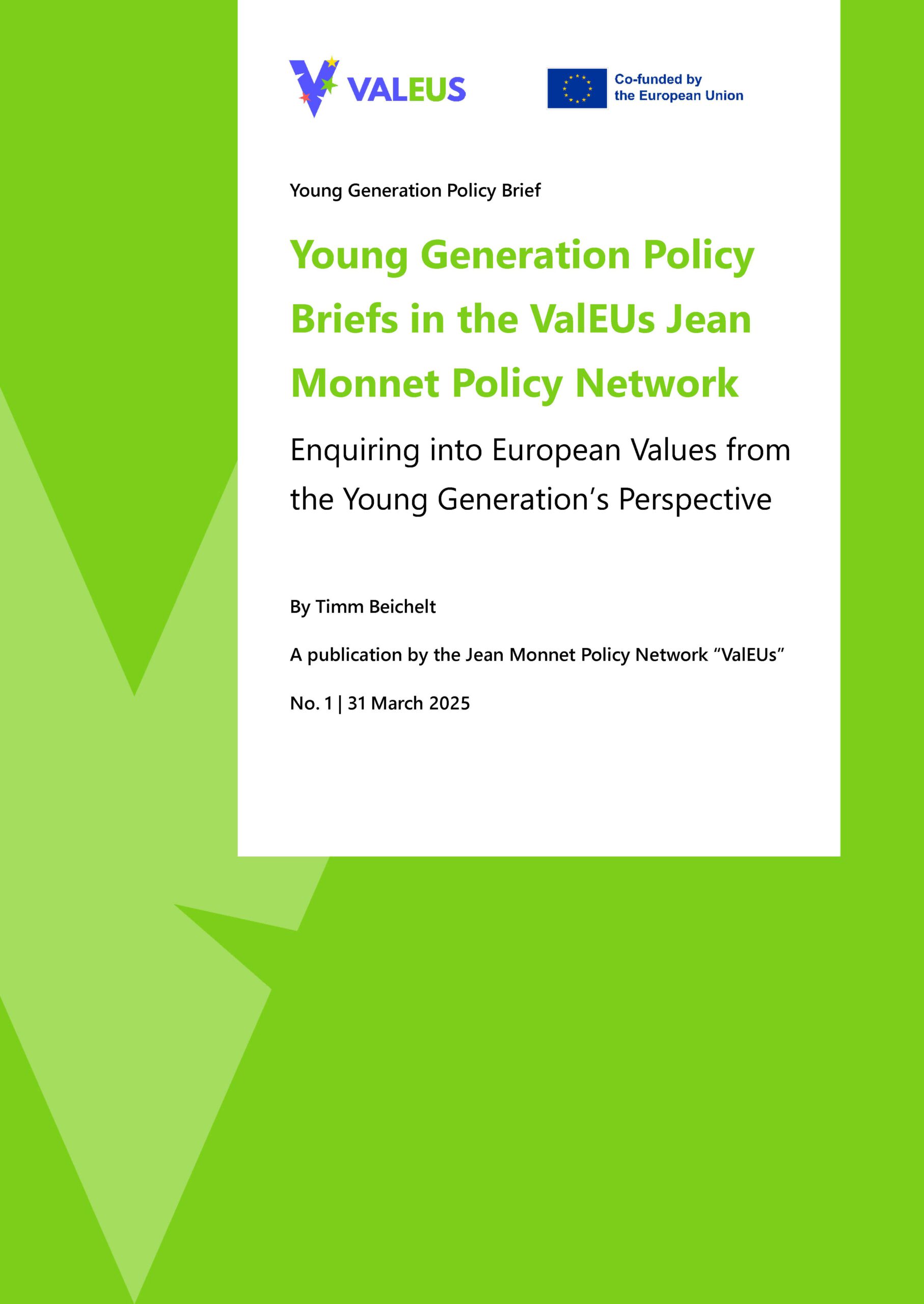
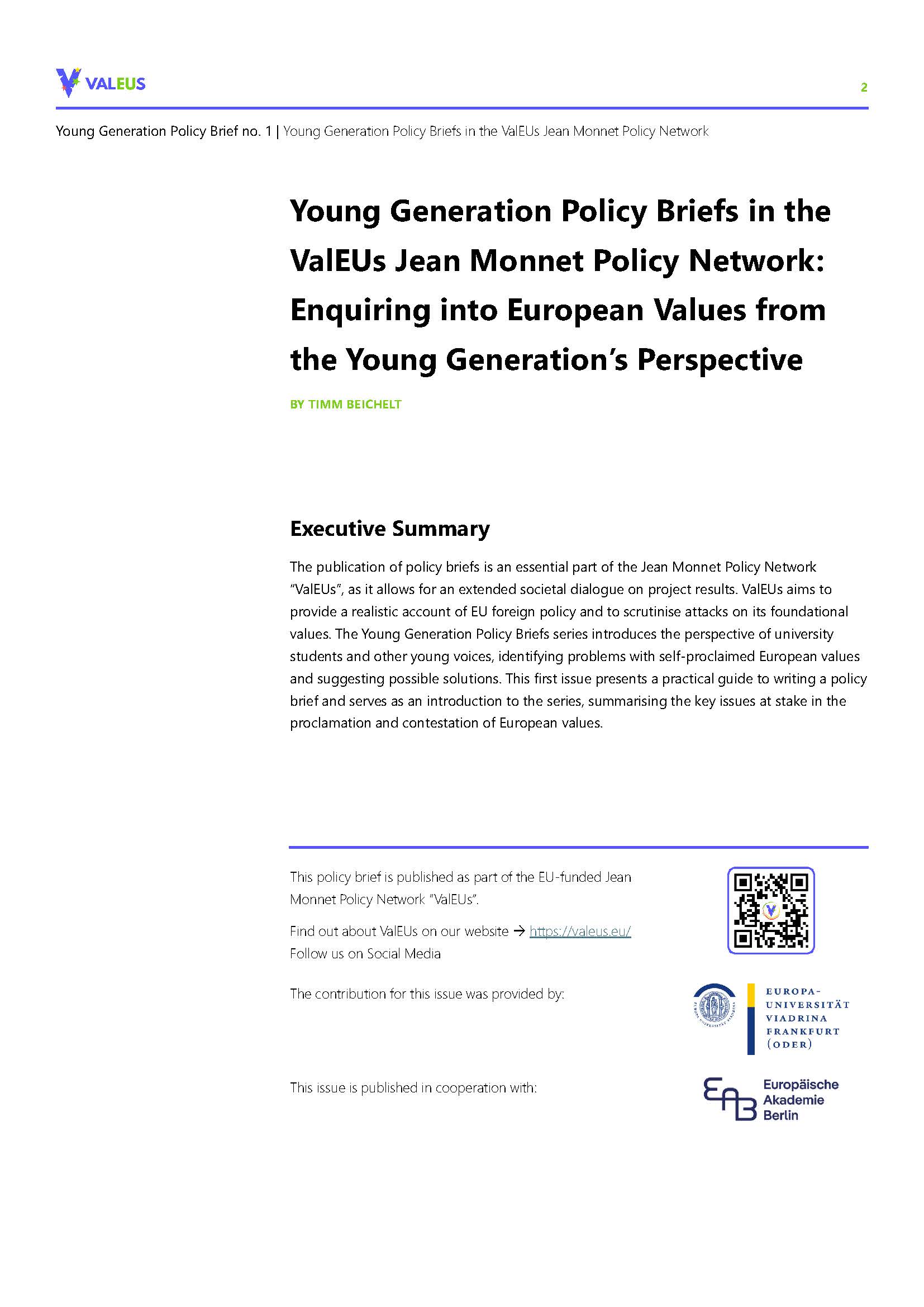
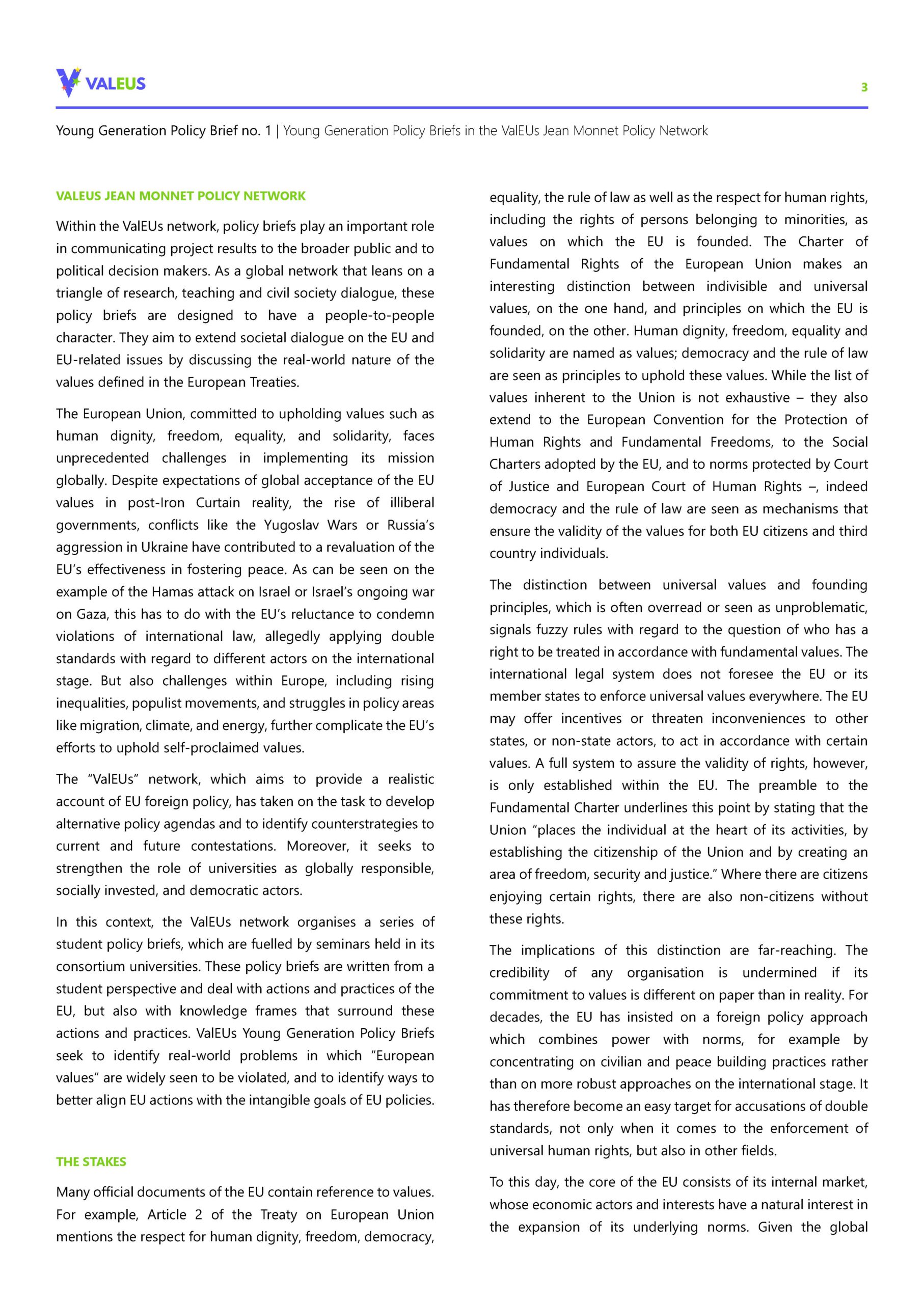
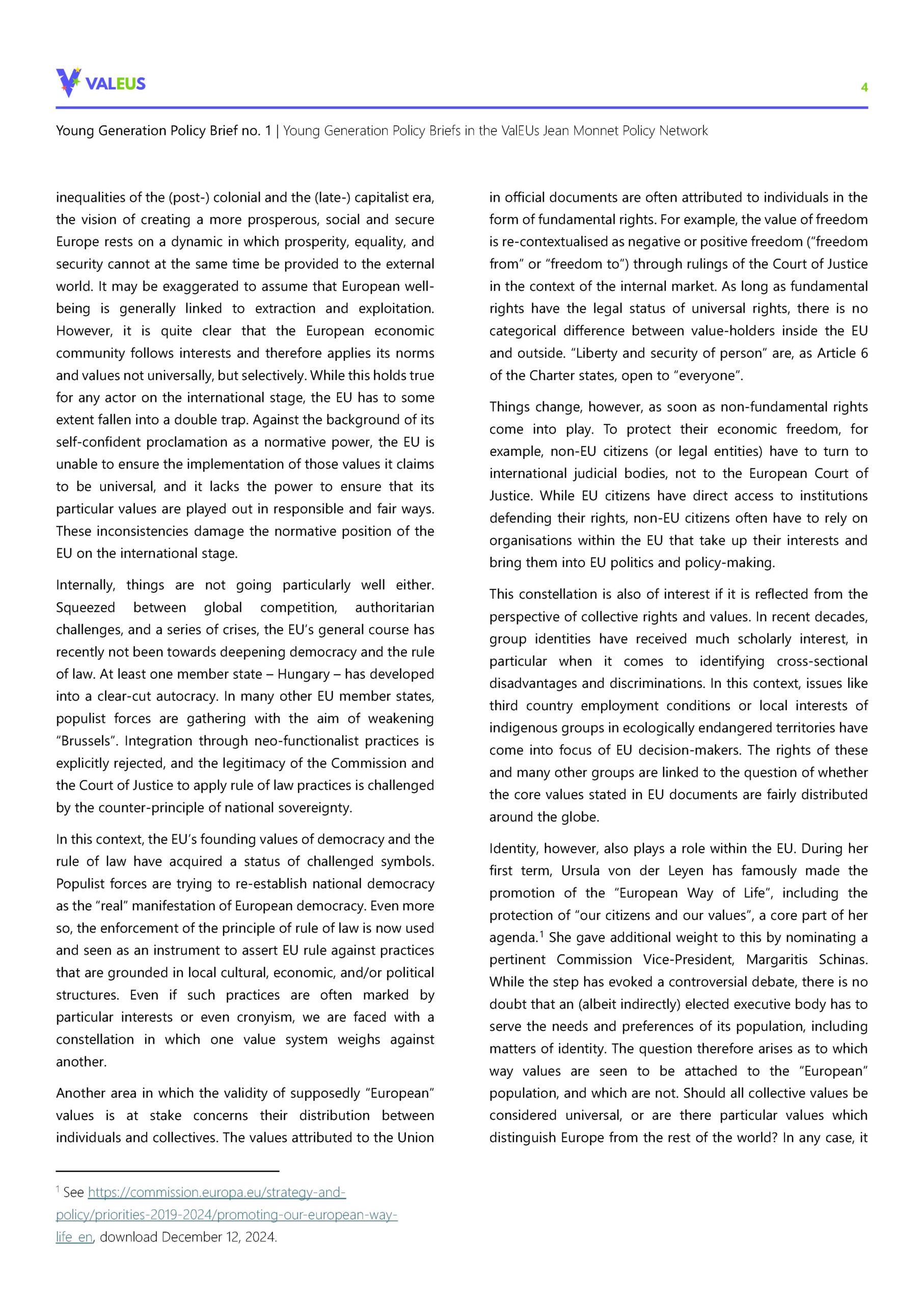
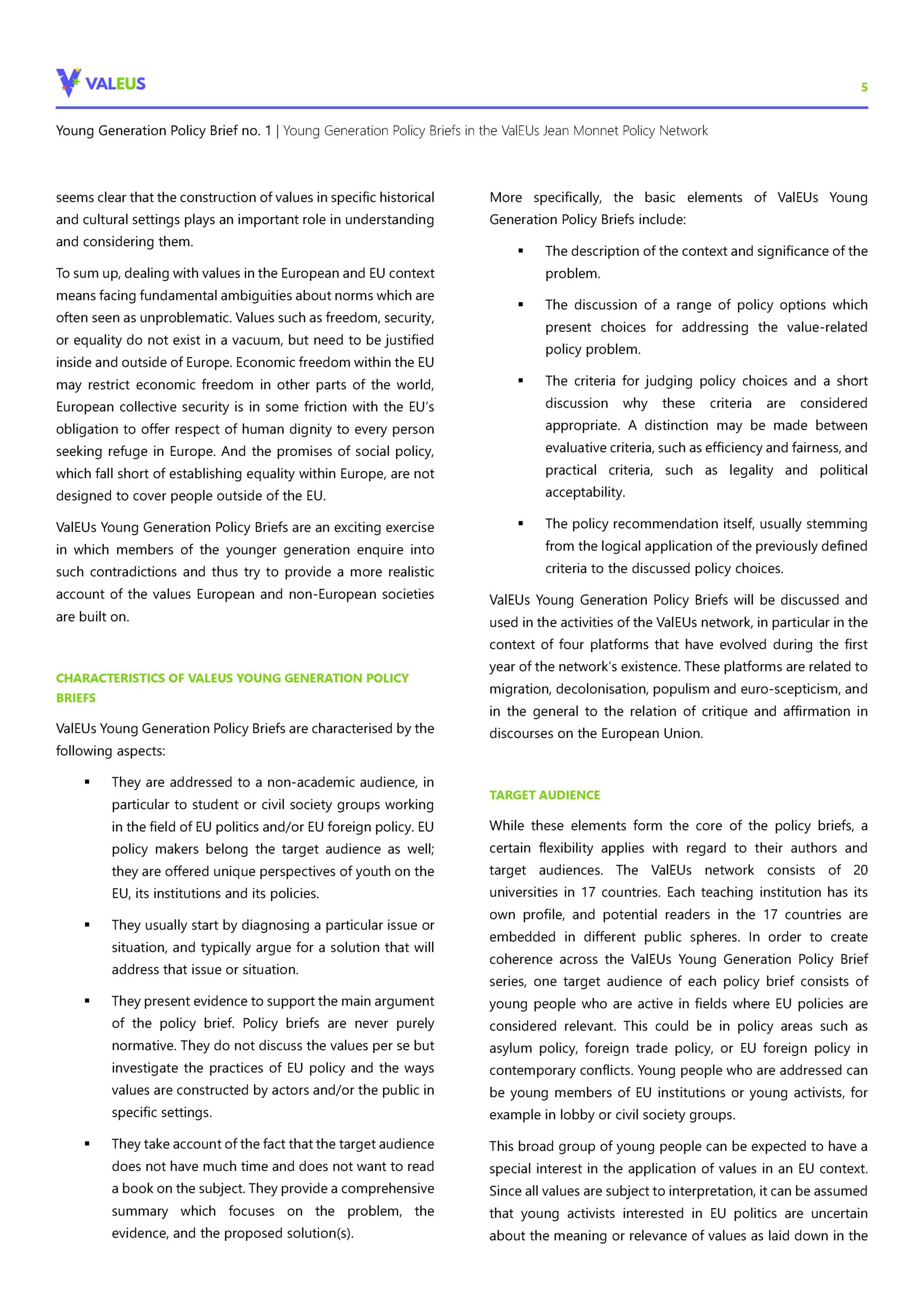
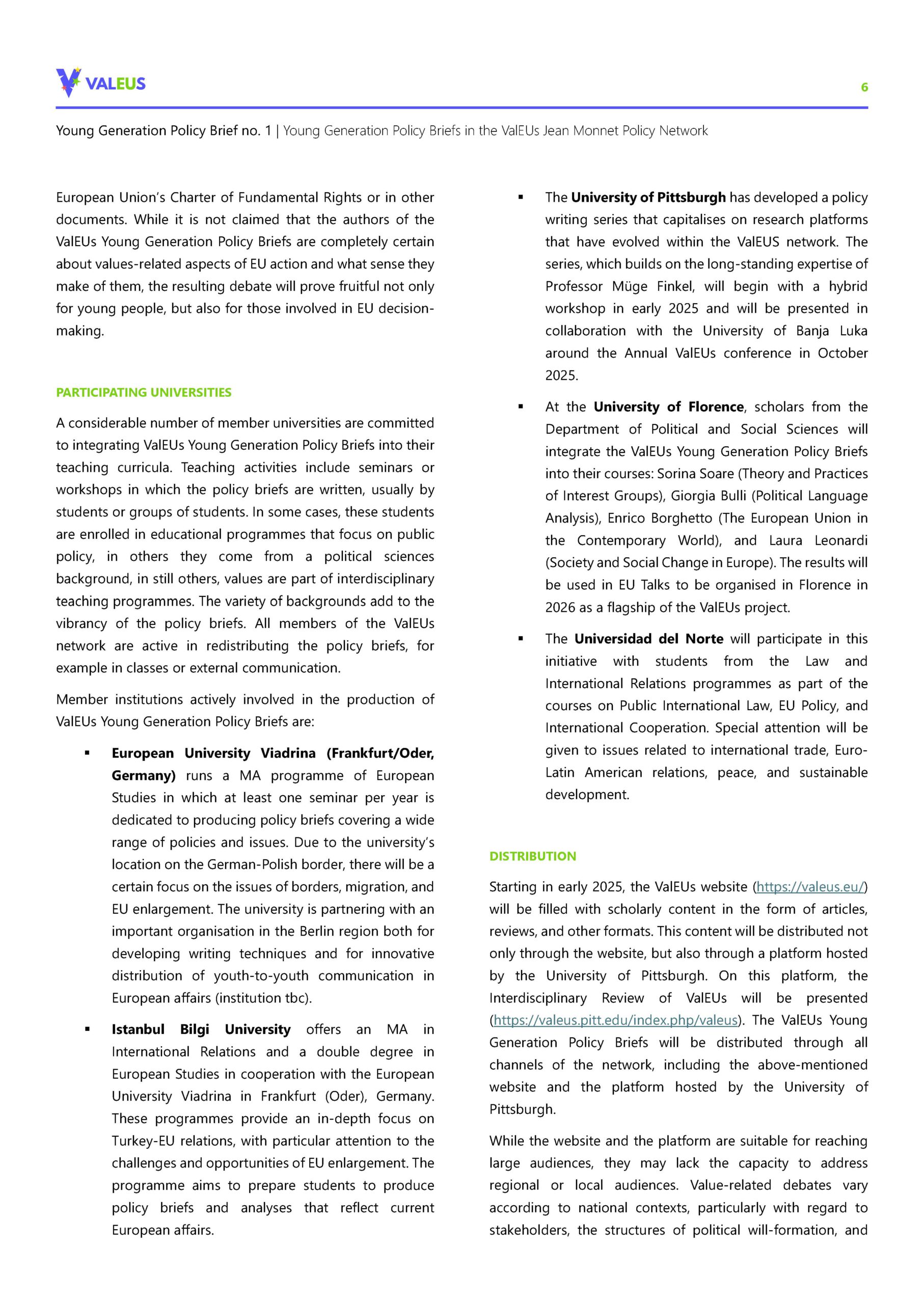
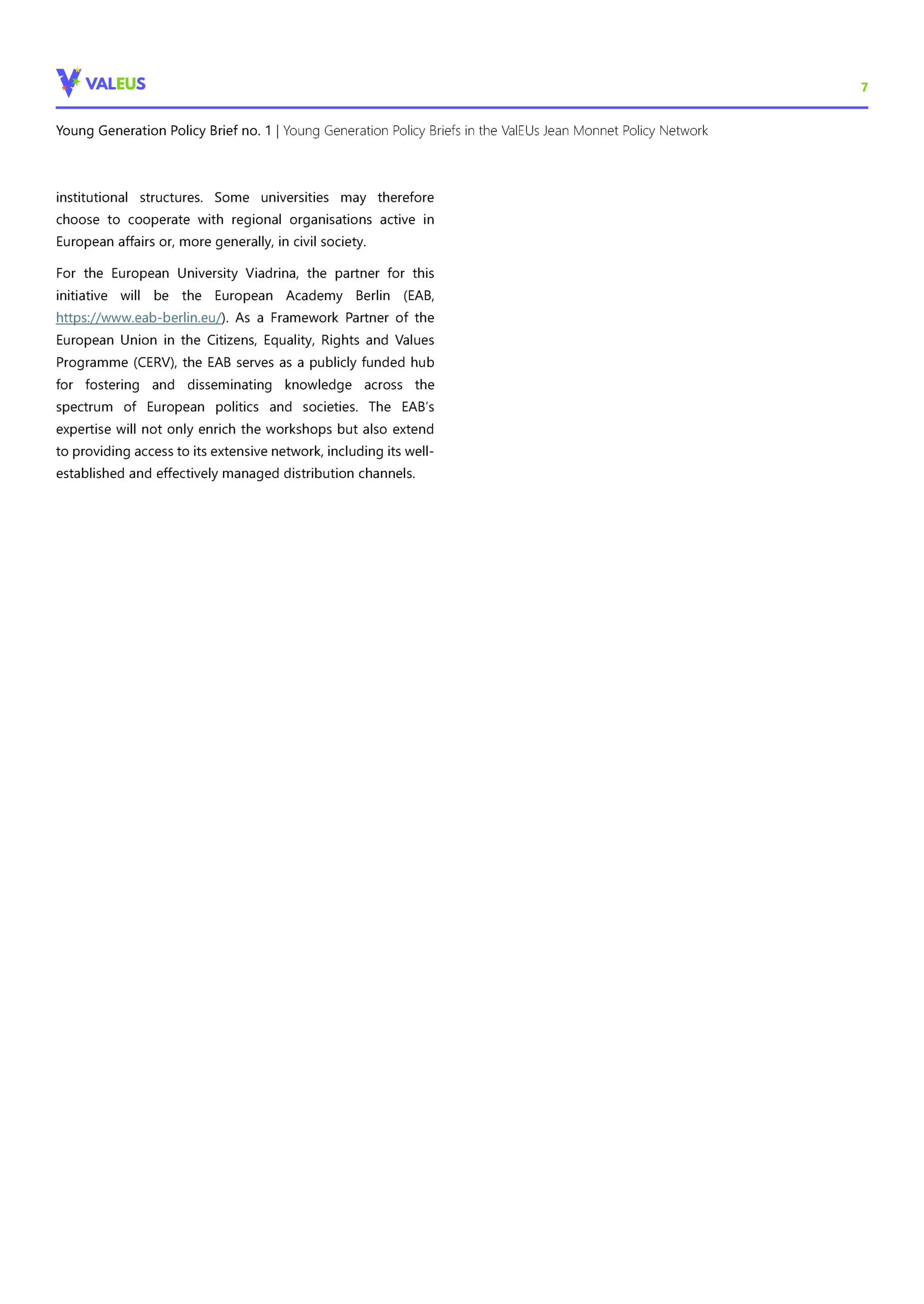
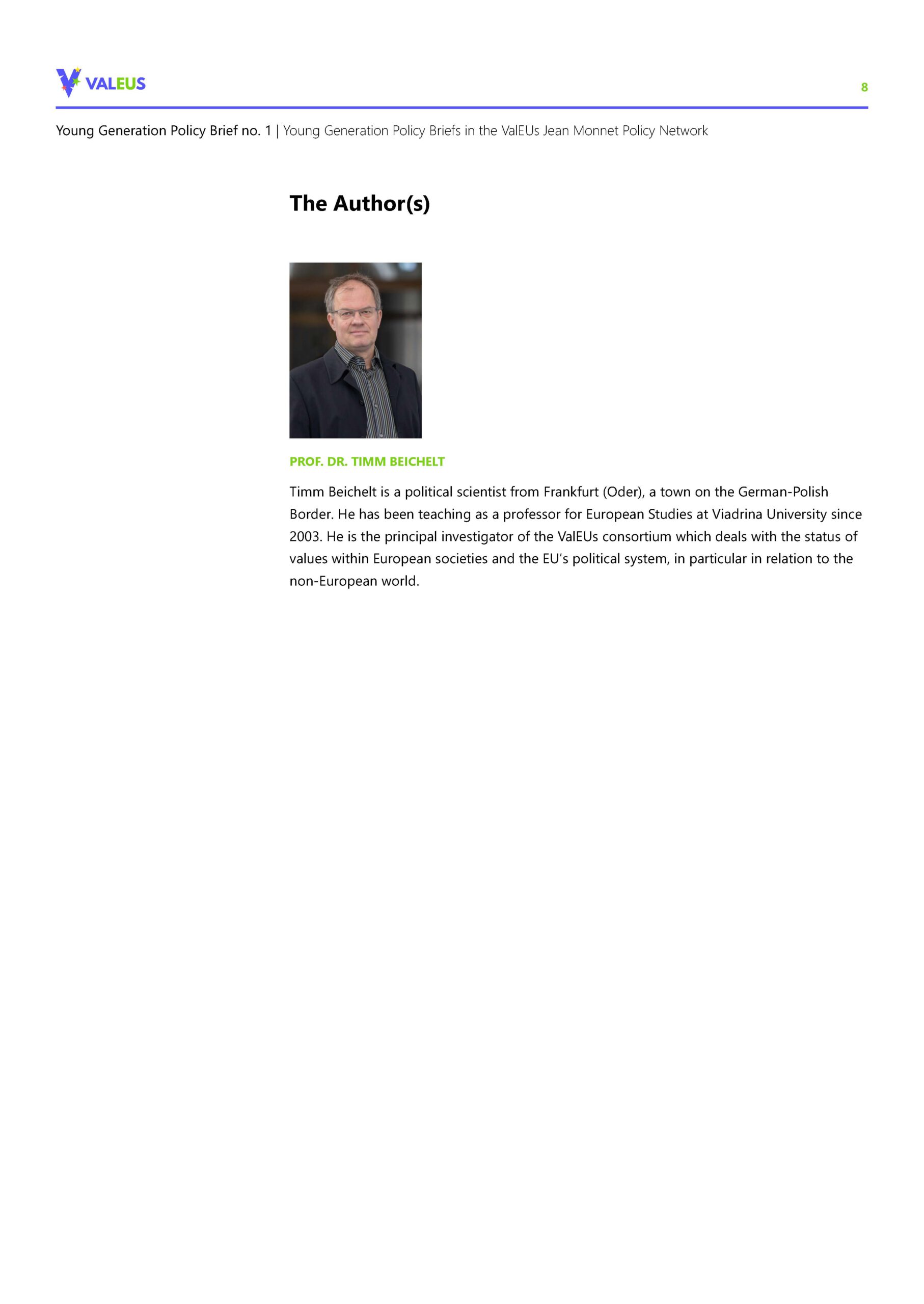
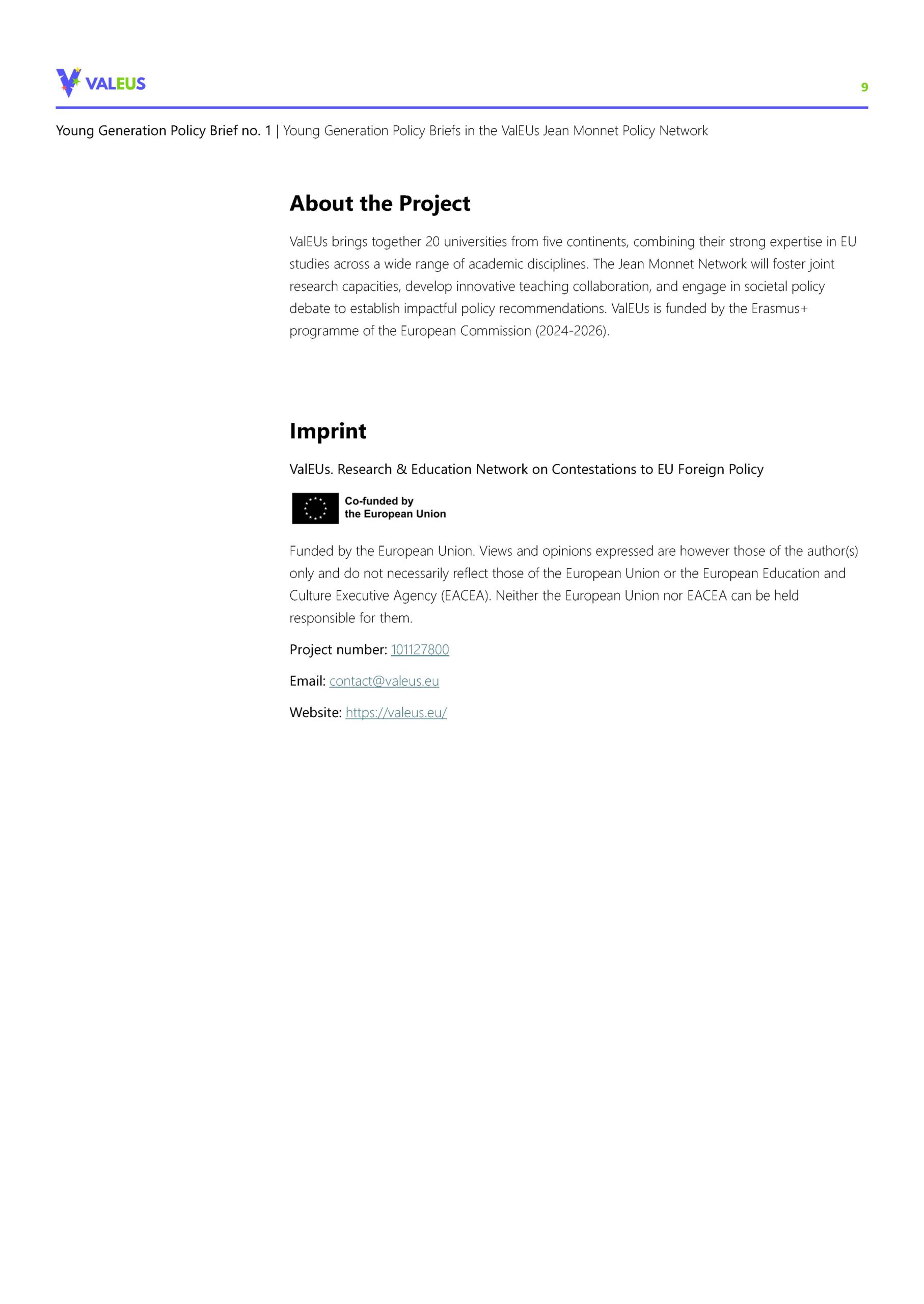
About the author:

Timm Beichelt
Professor of European Studies at the European University Viadrina
Dr. Timm Beichelt is a professor of European Studies at the European University Viadrina and the principal investigator of ValEUs. With a degree and a doctorate in political science from Heidelberg University, Timm works at the intersection of political science and cultural studies. His teaching and research focus on Democracy and Autocracy in Central and Eastern Europe, European Union Politics, Politics and Football, and Emotions in Politics. © Heide Fest
Young Generation Policy Briefs
The publication of policy briefs is an essential part of the Jean Monnet Policy Network “ValEUs”, as it allows for an extended societal dialogue on project results. ValEUs aims to provide a realistic account of EU foreign policy and to scrutinise attacks on its foundational values. The Young Generation Policy Briefs series introduces the perspective of university students and other young voices, identifying problems with self-proclaimed European values and suggesting possible solutions.

